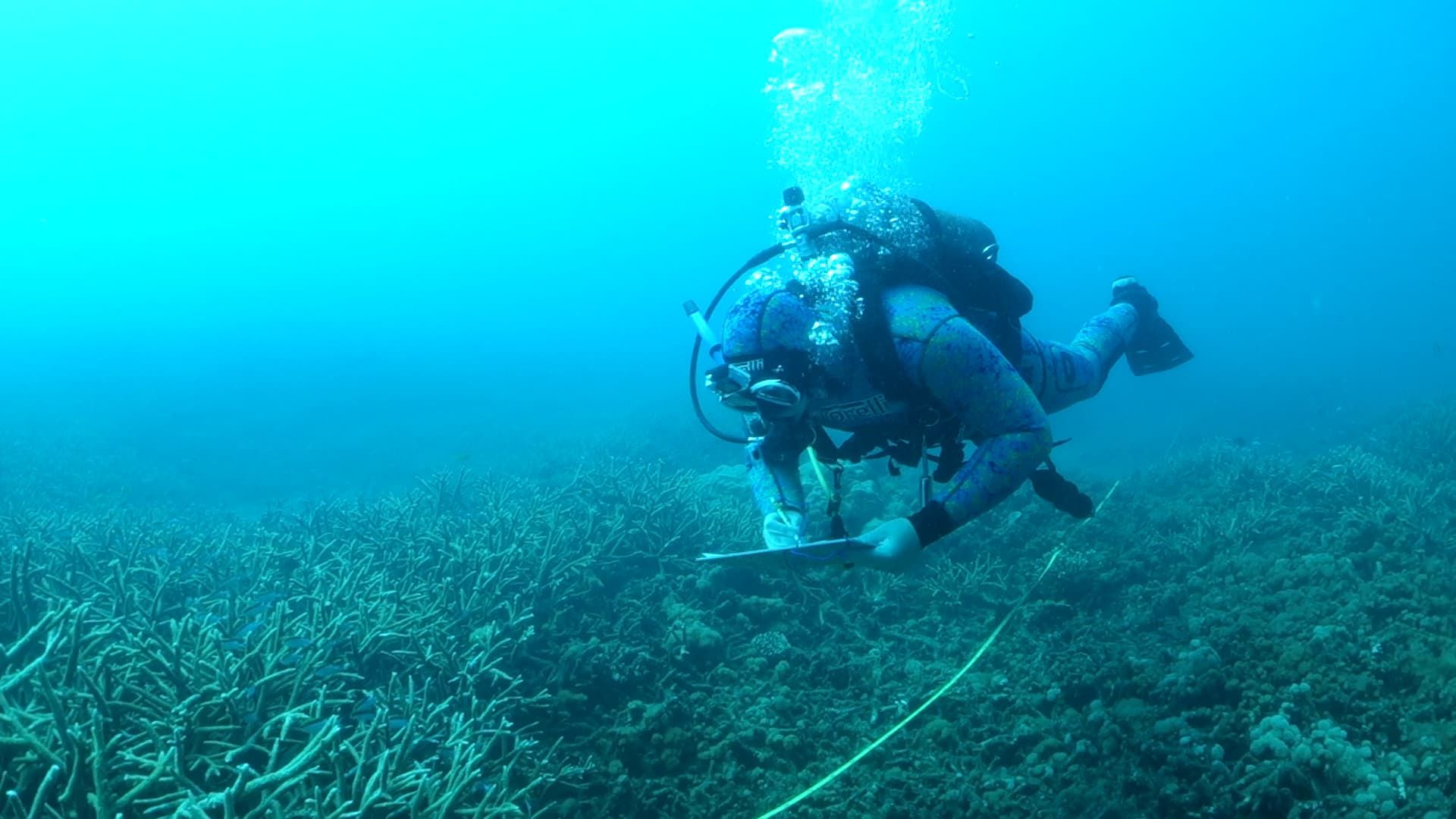Media Releases
Young wrasses hit hard by cyclones and bleaching

James Cook University scientists have found that young wrasses are hit hard by both cyclones and coral bleaching, and it could lead to major problems for the colourful reef fish.
JCU PhD student Jake Lowe led a study that measured the biomass of wrasse populations over a 350km stretch of the Great Barrier Reef between 2007 and 2018.
“It’s the first study of the impacts of multiple environmental disturbance events, predator density, and No-Take Marine Reserve protection on both young and adult wrasses over a large area and a long time period,” said Mr Lowe.
The scientists found young wrasses have been badly affected by the changes in their environment.
“We discovered that following both cyclone and coral bleaching events the biomass of juvenile wrasses declined significantly on inshore reefs of the Great Barrier Reef. This consistently resulted in fewer small fish surviving to replace adults,” said Mr Lowe.
He said the good news was that adult wrasses were more resilient, suffering only minor effects from coral bleaching and cyclones.
“The other good news is that the effect on juvenile wrasses following cyclones and coral bleaching events appear temporary, with biomass recovering within three years.
“However, we expect that severe climatic disturbances will become more frequent in coral reef ecosystems and will limit the ability of wrasse populations to recover,” said Mr Lowe.
He said the scientists were not sure exactly why juvenile wrasse biomass crashed after a cyclone or bleaching event, as the species of wrasse studied did not directly rely on coral - that might be damaged by bleaching or cyclones - as a food source.
“Our findings provide further evidence that habitat loss impacts a range of coral reef fishes beyond those that are directly reliant upon live coral. Discovering the mechanism driving declines in juvenile wrasses following cyclones and coral bleaching remains a priority,” he said.
Mr Jake Lowe
Via Alistair Bone
JCU Media Liaison
0409 734 542